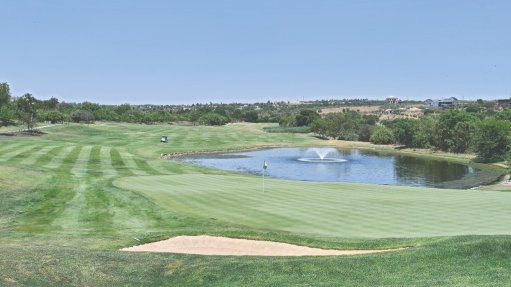World Bank ready to spend $5bn in Congo, with conditions
The World Bank could provide as much as $5-billion to Democratic Republic of Congo over the next five years if its new government commits to raising more revenue, fighting corruption and opening up its economy.
The financing would be a welcome boost for Congo’s new President, Felix Tshisekedi, who has promised a bold series of costly social programs, including free primary-school education for more than 20-million children. Last month, the International Monetary Fund said it’s considering resuming lending to the country after a seven-year hiatus.
The World Bank is offering to support parts of the government’s agenda, “but not at any price,” Jean-Christophe Carret, the World Bank country director for Congo, said in an Oct. 30 interview in Kinshasa, the capital. “We will help if they are credible in their will to reform a lot of things in the economy.”
Aid from the Washington-based lender will be conditioned on government commitments to increase revenue and improve management of everything from health and education to Congo’s burgeoning mining industry, Carret said. The World Bank is also pushing the government to reduce the number of tax exemptions it gives to various businesses, he said.
Congo is the world’s largest cobalt producer and Africa’s biggest miner of copper and tin. It’s also rich in deposits of gold, oil and other natural resources.
IMF PROGRAMME
Despite its immense mineral wealth, Congo’s 81-million people are among the poorest in the world. The nation annually ranks near the bottom of the most difficult places to do business. Some of the World Bank’s demands will focus on liberalizing the economy, particularly in opening up the supply of water, electricity and internet coverage, Carret said.
“The private sector needs to want to invest,” he said. “That is the only condition under which we can bring the population out of poverty as quickly as possible.”
A new IMF loan programme would also open the door to $1.5-billion of budget support from the World Bank over three years, Carret said. The IMF halted its last programme with Congo in 2012 amid worries about corruption in the mining industry.
Any new financing for Congo must first be approved by the World Bank’s board of directors, which already agreed to a $500-million programme to fight childhood malnutrition in May. The bank has about $1-billion left in its most recent programme that ends June 30.
Part of that money is destined for Tshisekedi’s free primary-school initiative, which should cost about $1.1-billion per year, Carret said. The Bank will contribute about $400-million a year for three years if the government takes steps to make the programme sustainable.
RAIL FAILURE
“It’s a governance programme for the education sector,” Carret said. Congo’s constitution guarantees free primary education, but mismanagement and the country’s tiny budget, with only about $5-billion in revenue, have never allowed it. One quarter of Congo’s population is primary-school age.
World Bank results have been mixed in Congo, which is still recovering from years of war.
Carret called a World Bank plan to fix the country’s bankrupt national rail system “a failure” after it spent $380-million through last year. In 2016, the lender pulled $73-million in funding for Congo’s Inga III hydropower plant over worries about transparency.
Development of the $14-billion project has stalled, as the country has yet to find a way to finance feasibility studies. The World Bank has no more interest in Inga III, Carret said. It will instead focus any new funding on smaller energy projects that are quicker to launch, like micro-hydro plants and solar power, he said. Only about 10% of Congolese have access to power.
World Bank funding to Congo is half grant and half “highly concessional” loans.
Article Enquiry
Email Article
Save Article
Feedback
To advertise email advertising@creamermedia.co.za or click here
Announcements
What's On
Subscribe to improve your user experience...
Option 1 (equivalent of R125 a month):
Receive a weekly copy of Creamer Media's Engineering News & Mining Weekly magazine
(print copy for those in South Africa and e-magazine for those outside of South Africa)
Receive daily email newsletters
Access to full search results
Access archive of magazine back copies
Access to Projects in Progress
Access to ONE Research Report of your choice in PDF format
Option 2 (equivalent of R375 a month):
All benefits from Option 1
PLUS
Access to Creamer Media's Research Channel Africa for ALL Research Reports, in PDF format, on various industrial and mining sectors
including Electricity; Water; Energy Transition; Hydrogen; Roads, Rail and Ports; Coal; Gold; Platinum; Battery Metals; etc.
Already a subscriber?
Forgotten your password?
Receive weekly copy of Creamer Media's Engineering News & Mining Weekly magazine (print copy for those in South Africa and e-magazine for those outside of South Africa)
➕
Recieve daily email newsletters
➕
Access to full search results
➕
Access archive of magazine back copies
➕
Access to Projects in Progress
➕
Access to ONE Research Report of your choice in PDF format
RESEARCH CHANNEL AFRICA
R4500 (equivalent of R375 a month)
SUBSCRIBEAll benefits from Option 1
➕
Access to Creamer Media's Research Channel Africa for ALL Research Reports on various industrial and mining sectors, in PDF format, including on:
Electricity
➕
Water
➕
Energy Transition
➕
Hydrogen
➕
Roads, Rail and Ports
➕
Coal
➕
Gold
➕
Platinum
➕
Battery Metals
➕
etc.
Receive all benefits from Option 1 or Option 2 delivered to numerous people at your company
➕
Multiple User names and Passwords for simultaneous log-ins
➕
Intranet integration access to all in your organisation

















